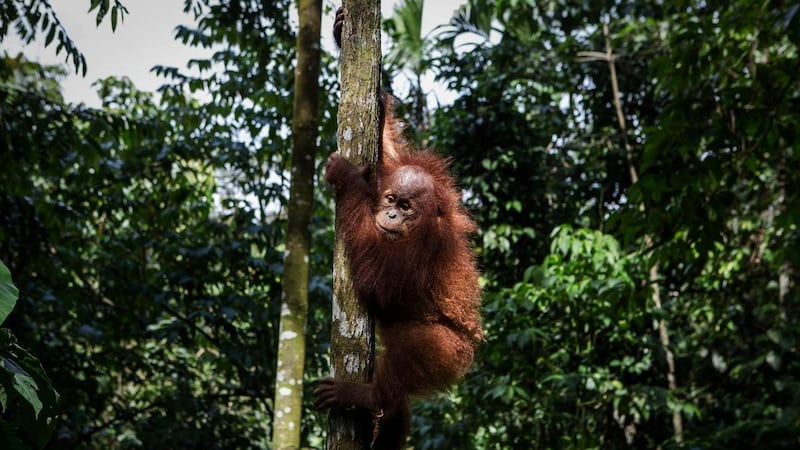Dealers in Indonesia are among the most active ape traffickers, especially of the lesser apes such as gibbons and siamangs, say experts monitoring the trade.
The country is one of the hottest markets for illegally traded apes, particularly orangutans, where a pair of infants can exchange hands on the black market for more than $10,000 (Dh36,700).
Sanctuaries are popular tourist attractions, where orangutans have been rescued from palm oil plantations.
_____________
[ Main story: Overweight and inbred, banned exotic animals handed over under amnesty ]
_____________
Facebook or Instagram posts by traffickers in the region are often in Bahasa Indonesia, the local language, and have offered clues to trading to those looking out for illegal activity online.
Daniel Stiles who works with the Project to End Great Ape Slavery in Kenya has spotted some key words in posts that highlighted potential trafficking.
One was ‘rekber’ that kept being repeated in suspected illegal animal transactions.
“We got lucky when a big Indonesian wildlife trafficker gave a short tutorial on what ‘rekber’ meant and how it operated,” he said.
“The word is an abbreviation of ‘rekoning bersama’, meaning joint account.
“Several private rekber services comprised of individuals or companies have set up bank accounts to act as escrow services for the industry.
“The dealer and buyer agree on a price, then go to an online rekber service.”
________________
Read more:
Lions of Kandahar give pride back to Kabul zoo
Thai monks charged as tiger potions, charms point to illicit trade
Palm oil: what it is, why it's killing our planet, and how to avoid it
_________________
A service cannot release funds to the seller, or dealer, until the buyer gives approval.
The buyer deposits the agreed price into the account, the service informs the seller that the funds are there, the dealer ships the animals, the buyer informs the service that he has received what he paid for and the service releases the funds to the dealer.
Some banks completing these kinds of transaction are unwittingly fuelling the illegal wildlife trade by facilitating transactions.
“These services are not registered as banks, which means they operate largely on trust between the buyer, seller and the service entity,” Mr Stiles said.
“Regulatory steps need to be taken to ensure that rekber services are not used for trade in illegal commodities, or for illicit financial flows in the form of tax evasion and money laundering.”







